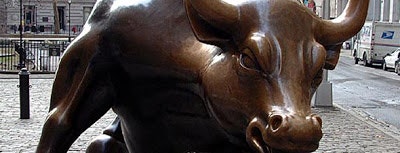Developing Vision 2050, Front End of Innovation Forms Innovation Think Tank

By Connie Harryman, Applied Concepts Creativity
Guest Blogger IIR USA
LIVE Front End of Innovation Europe 2010
Topic:
Part 2: Innovation Think Tank ' Develop a Vision for the year 2050
Led by: Per Sandberg, Managing Director, WORLD BUSINESS COUNCIL FOR SUSTAINABLE DEVELOPMENT
After listening to Part 1: Using WBCSD's Vision2050 of a Sustainable World to Drive Corporate Innovation, attendees at the Front End of Innovation 2010 conference were invited to generate ideas for Vision 2050.
These are their ideas:
' With open innovation you lose control.
' The biggest challenges are the names: the toothbrush example, protecting the market brand and existing business structure. It is hard to create partnerships.
' The big companies and brands have resources and money.
' How can we convince them to abandon existing business challenges?
' Here is a different opinion. How could the future look like? Make it transparent; current business models are an inhibitor. Business models are preventing new types of partnerships.
' Low hanging fruit represents a large win referring to the McKinsey chart in Vision 2050.
' Recognize that in IT and the building industry, the way you purchase influences things.
' There is a lot of stuff you can do now; it does not take fancy things.
' In large organizations, there is a lot of inertia.
' Different viewpoint is that scale increases consumption in oil energy, 1% change. They used the same data set from McKinsey.
' Trying to stimulate grassroots for sustainability, the way forward is to do public-private funding.
' Needs to be focused and fast.
' Large corporations think long term very well. P&G began with candles.
' How do we finance, if the speed is too slow?
' It is unrealistic to rely on big corporations.
' Must have the politics of public-private partnerships.
' The average person will not be making the decisions.
' Create fast change by industry solutions.
' The internal organization is not conducive to innovation. Usually innovation occurs in R&D, or specialized departments.
' Innovation leads to financial performance.
' In bakeries the unsold buns are thrown away. This is not public knowledge. Public image was the driver that led to these results:
1.) Reduce by half in 10 years.
2.) Increase the value of the bread left.
3.) New products developed in 2 month, is multiplier by 100.
4.) Use bread as fuel.
5.) Lot of packaging is needed, use in biochemical or bio plastics.
' Smaller scale needed for innovation, important to parcel out the problem to small issues that can be solved. It is better to work in small teams.
' Megatrends: Intra entrepreneurship will play a big role.
' Can be accelerated, entrepreneurs can be glue for systemic change to occur. We need to incentivize entrepreneurs. Embrace entrepreneurs from all angles. They are driving change.
' We not want to waste bread but want to make money.
' Companies should not pretend to be something and do something else.
' FEI conference focuses on sustainable innovation with cases, etc.
' With a background in a chemical company, the challenge in the fashion or cosmetic industry is that as a supplier we have difficulties communicating with R&D, marketing, and not being able to talk to the right people. We need to remove the walls between different organizations.
' From organizational development, if you do not have a leader like Richard Branson, then your organization needs urgency. She had a prior experience in Shell. They had to work on composition on their oil. You can create a sense of urgency from the outside.
' In the U.S. nothing was learned from the banking crisis.
' Need a burning platform; this is needed to drive change. Ask yourself, what if tomorrow there is no more water? As a company we must question ourselves, and then we will innovate. What as a person what would you do?
' In the brewery industry, cans are recycled. They learned:
1.) Be on consumer top of mind. You need meaningful communication with the consumer.
2. ) Renovation reuses the bottle. Now label bottle, 'Hello this is the 4th, 5th time you have seen me.' This changed the consumer mindset.
' Will not get big companies to agree at high altitude. Small companies are good at speed and entrepreneurial. Bring together small companies with funding provided by large companies. Use the leverage of both small and big companies.
' Lots of large companies have huge foundations, like the United Nation's foundation. Address them and can make big changes occur.
' Summary of key points :
1.) Create sense of urgency
2.) Small bits of a problem
3.) Tools
4.) Project oriented approach, small teams
5.) Create Partnerships